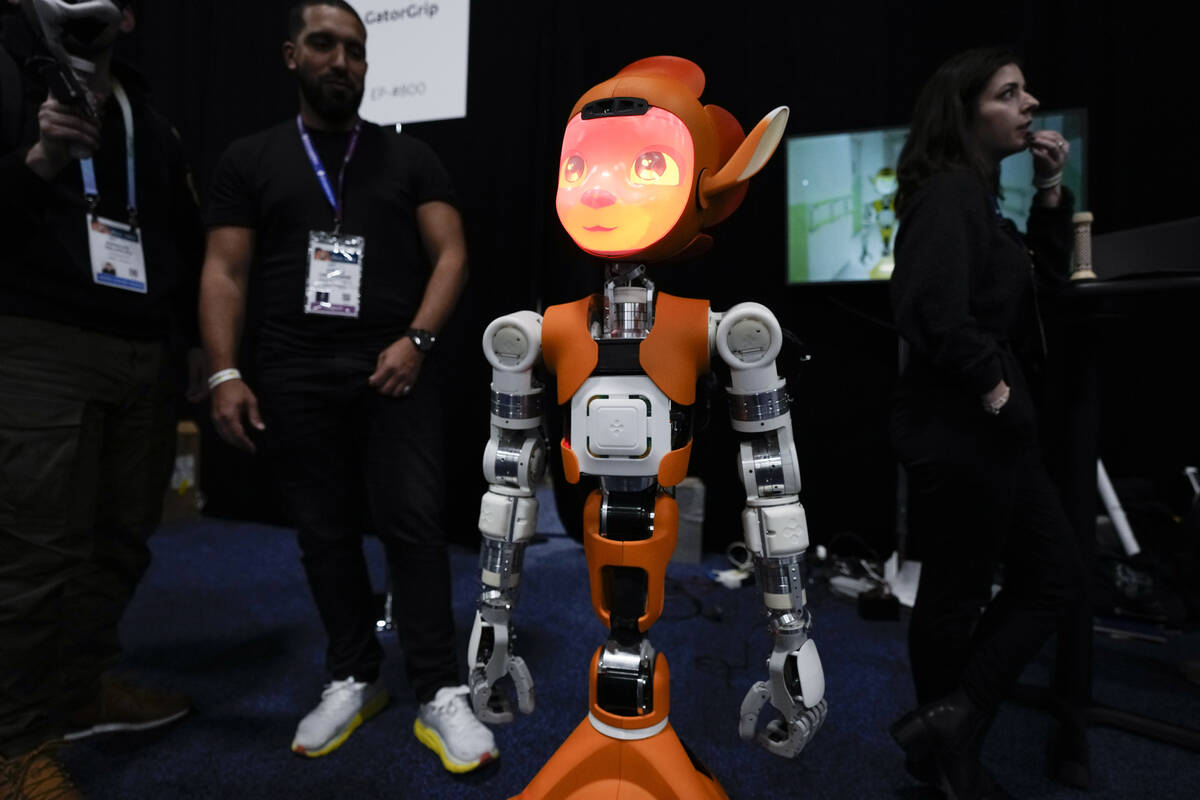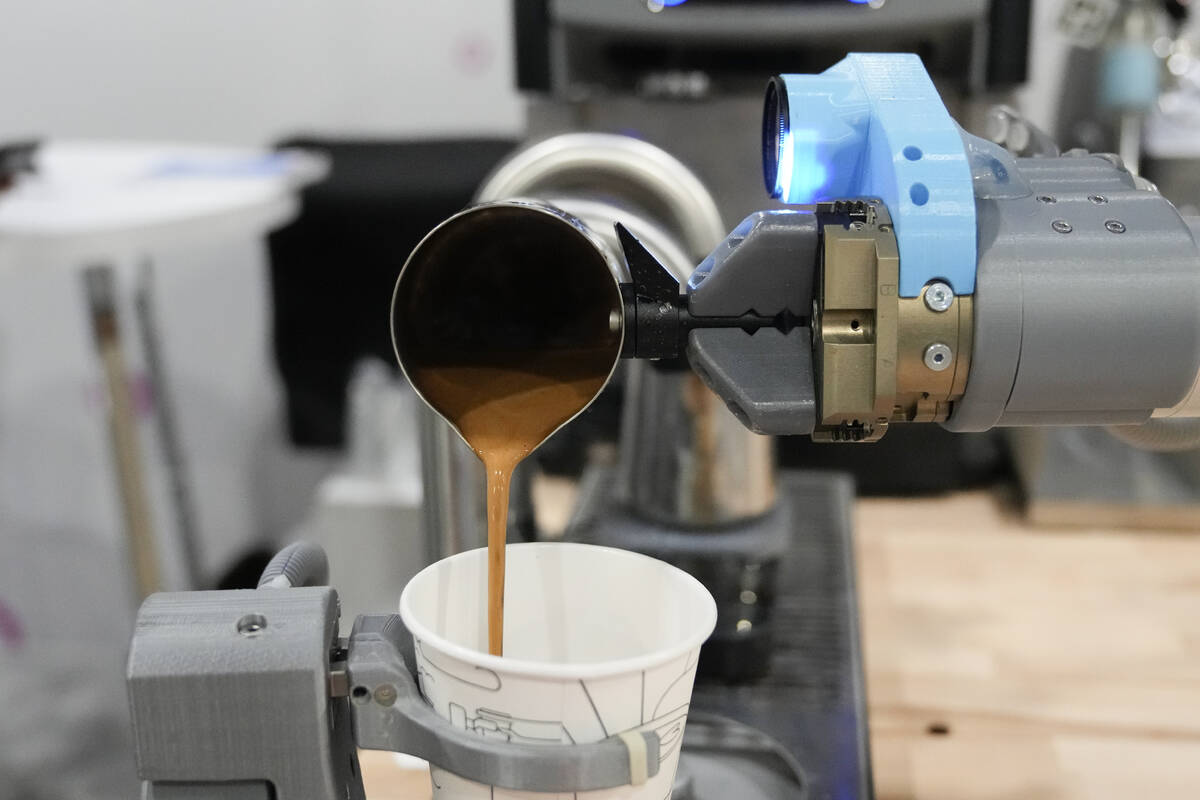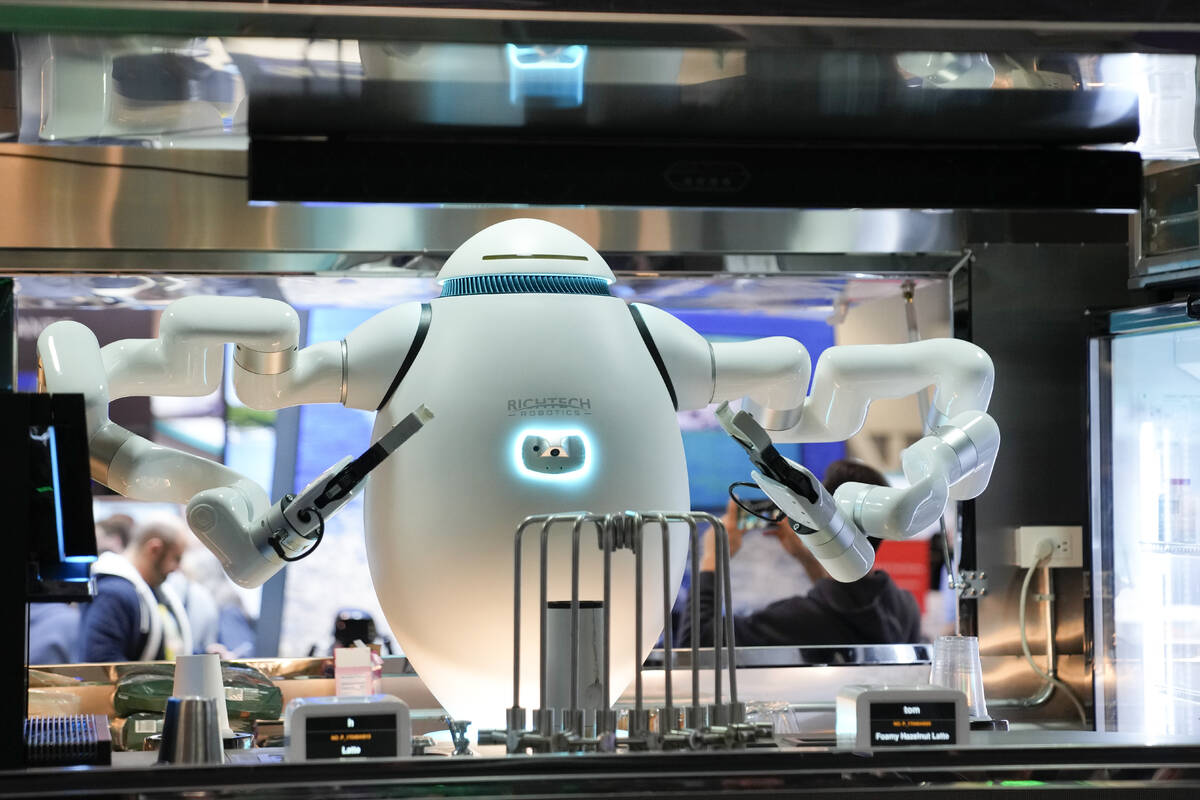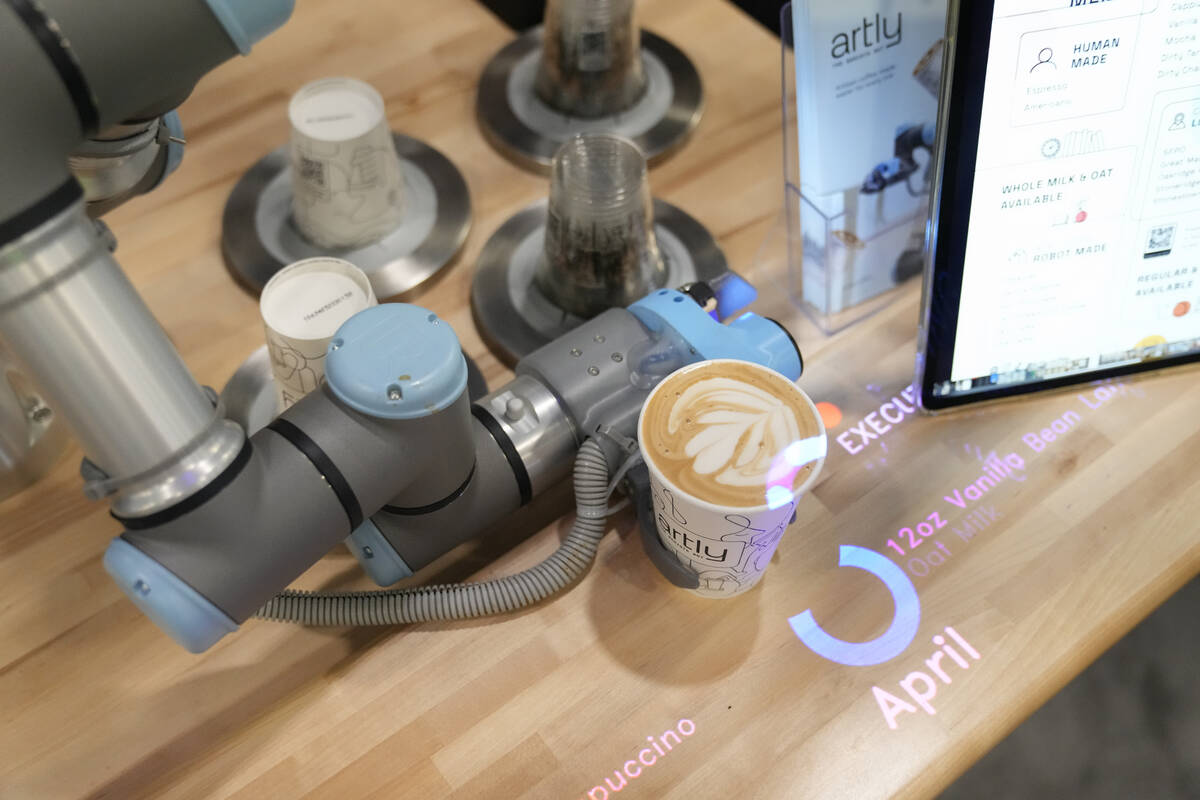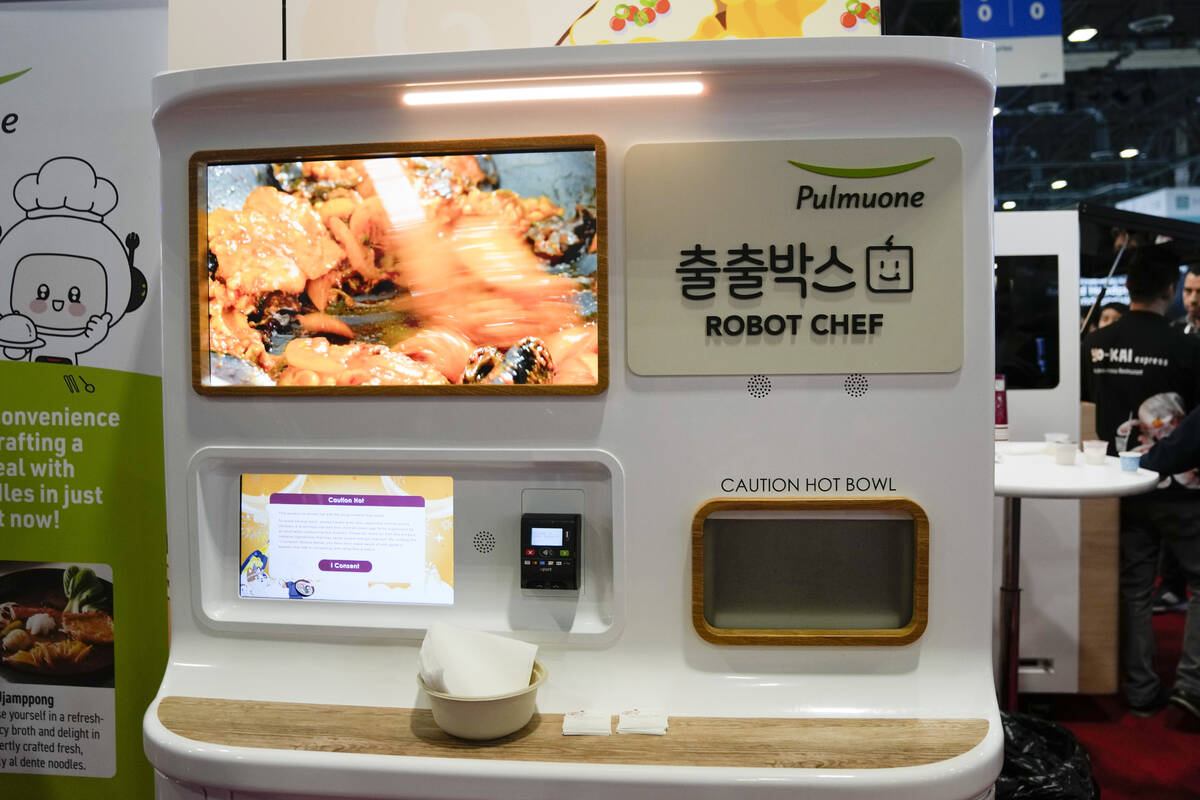Robots, AI cause a stir at CES as casino union workers fear for their jobs
The barista tipped the jug of smooth, foamy milk over the latte, pouring slowly at first, then lifting and tilting the jug like a choreographed dance to paint the petals of a tulip.
Latte art is a skill that can take months if not years of practice to master — but not for this barista powered by artificial intelligence.
Robots of all kinds caused a stir on the show floor this week at the annual CES technology trade show in Las Vegas.
It’s innovations like this that worry Roman Alejo, a 34-year-old barista at the Sahara hotel-casino on the Las Vegas Strip, who can’t help but wonder if the clock is ticking on hospitality jobs in the age of AI.
“It is very scary because tomorrow is never promised,” he said. “A lot of AI is coming into this world. It is very scary and very eye-opening to see how humans can think of replacing other humans.”
The world’s largest tech show put those fears back under the spotlight just a little over a month after the casino workers union in Las Vegas ratified new contracts for 40,000 members, ending a bitter, high-profile fight that called attention to AI’s threat to union jobs.
“Technology was a strike issue and one of the very last issues to be resolved,” said Ted Pappageorge, the Culinary Workers Union’s secretary-treasurer who led the teams that negotiated new five-year contracts, narrowly averting a historic strike at more than a dozen hotel-casinos on the Strip.
Hospitality workers told The Associated Press in interviews over eight months of bargaining that they were willing to go on strike and take a cut in pay to win stronger job protection against inevitable advancements in technology. That includes technology already at play at some resorts: self check-in stations, automated valet ticket services and robot bartenders known as “tipsy robots.”
Pappageorge said the emergence of robotics in the hospitality and service industry has been on the union’s radar for years. The difference now, he told AP this week, “is the combination of artificial intelligence and robotics.”
Experts say that breakthrough in AI technology has forced labor unions to rethink how they negotiate with companies.
Bill Werner, an associate professor in the hospitality department at the University of Nevada, Las Vegas, said unions now have to be “much more deliberate” in their negotiations for job security.
The types of casino union jobs at risk could look drastically different five years from now, for example, when the Culinary Union’s contract ends.
“What is going to happen to these people and what rights do they have?” he said. “And what happens to them if they lose their job to a robot?”
In its latest contract, the union cushioned its so-called safety net for workers, winning $2,000 in severance pay for each year worked if a job is eliminated by tech or AI, as well as the option to try to move to a different department within the company.
Pappageorge said they had to “develop new language” that protected workers both from today’s technology and “technology that we don’t even know is coming.”
“This idea that technology, robotics and artificial intelligence is just running wild with no control at all can do incredible damage,” Pappageorge said. “So what we have to do is get ahead of the curve, and CES is where it’s at.”
More than 100 union members attended the trade show this week to scope out emerging tech that could put more casino jobs at risk.
And there was plenty new on the show floor: Friendly-faced robots that complete deliveries in hotels and restaurants. A robotic masseuse. Bots that can prepare and serve coffee, ice cream or boba. AI-powered smart grills that can handle tasks like broiling and searing without a human in the kitchen. And chef-like robots teasing a future with “autonomous restaurants,” as one company put it.
Meng Wang, co-founder of food tech startup Artly Coffee, one of the more than 4,000 exhibitors at CES this year, said he isn’t in the business of eliminating jobs. Wang said Artly’s autonomous barista bots can help fill a labor shortage in the service industry.
“Baristas have a hard job. It’s very labor intensive, long hours. The pay is not that good,” he said. “What we are doing is not replacing jobs. We are filling the need in the market and we are bringing specialty coffee to more places.”
But Werner said AI poses a real threat to casino union jobs that don’t require face-to-face interaction with customers — housekeeping, food preparation and cooks, for example.
“When the industry doesn’t have to worry about the effect on customer service, then that takes a lot of the risk out of automation,” he said. That’s especially true for a people-pleasing tourist destination like the Las Vegas Strip, where customers expect top-notch service and experiences, including the latest trends in technology.
That makes Las Vegas “a good place to test these things and see how customers react to it,” he said.
The Culinary Union and its members, like Alejo, the barista, acknowledge that the hospitality industry is ever-evolving.
“The innovations are incredible,” Alejo said. “But it is very scary that in today’s world, everything seems to revolve around technology.”
———
Video producer James Brooks contributed to this report.



